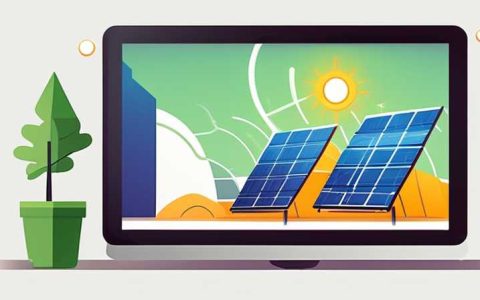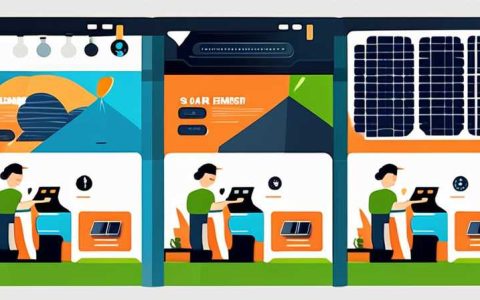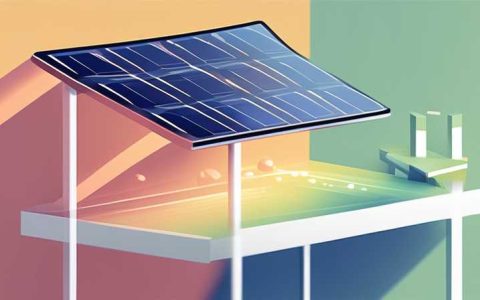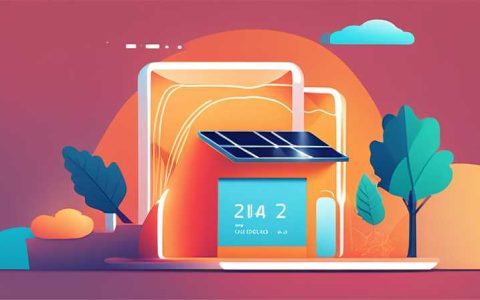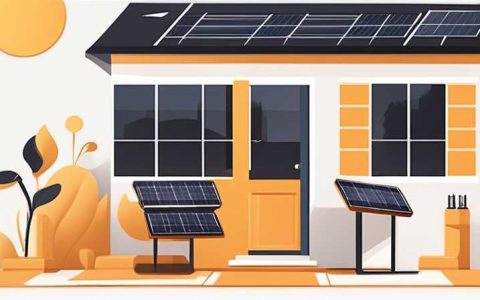
How much does 2kw solar energy cost
1. The general expense for a 2kW solar energy system typically ranges from $6,000 to $12,000, depending on various factors, including installation and equipment quality. 2. Financing options can significantly affect the overall price, with incentives and rebates available for many homeowners. 3. Installation costs can vary by region and may include additional expenses like permits, which should be factored into the total investment. 4. The long-term savings on electricity bills can offset the initial investment, making solar energy a financially sound choice for many individuals.
Investing in solar energy presents an appealing opportunity for homeowners and businesses alike. A 2kW solar energy system, while modest compared to larger configurations, can still provide significant benefits. Understanding the total cost of installation is crucial for potential buyers to make informed decisions. Solar energy involves an upfront investment, but it also has the potential to yield long-term savings through reduced electricity expenses. Individual preferences and conditions will determine whether such an endeavor is both practical and financially wise.
1. UNDERSTANDING SOLAR ENERGY SYSTEMS
The world is becoming increasingly concerned with sustainable energy options due to rising environmental concerns. Solar energy systems stand out for their capacity to harness clean energy from the sun, providing a renewable source of power. A 2kW solar energy system is typically suitable for smaller households or specific applications like powering a few key appliances.
Significantly, solar panel output can vary based on several factors including geographic location, sunlight exposure, and individual energy consumption patterns.
2. INITIAL INVESTMENT FOR SOLAR INSTALLATION
When purchasing a solar energy system, consumers often encounter a wide range of costs associated with the initial investment. The price for a 2kW solar energy system typically falls between $6,000 and $12,000. However, this range can fluctuate based on the quality of components selected, geographical installation nuances, and labor charges.
The expenses beyond the panels themselves include inverters and mounting hardware, which are crucial for system functionality. Various brands and models of panels differ in cost and efficiency, making it imperative for buyers to conduct thorough research.
3. FACTORS AFFECTING SOLAR ENERGY COSTS
Many variables influence the total expenditure on solar energy. One significant consideration is geographic location, which affects both sunlight availability and local government policies regarding renewable energy. Areas with substantial sunlight exposure often yield higher energy production, potentially increasing the value of the investment.
Installation fees can vary tremendously; metropolitan areas might present higher charges due to the elevated cost of living, while rural settings could offer lower prices. These regional inconsistencies affect the comprehensive budget for potential buyers.
4. FINANCING OPTIONS AVAILABLE
For those considering a solar energy installation, various financing alternatives exist. Homeowners may explore options such as solar loans, leases, and power purchase agreements (PPAs). Each of these arrangements provides pathways to acquire a solar system without the necessity for immediate, full payment.
Government incentives further augment the affordability of solar energy systems. Many states offer tax credits, rebates, or grants designed to incentivize the transition to renewable energy. Thus, assessing eligibility for such programs can significantly influence the final financial commitment.
5. INSTALLATION PROCESS AND COST
Acquiring a solar energy system involves meticulous planning and execution. Once a consumer selects a provider, the installation begins with site assessment and permitting. These preliminary steps ensure that the system is suitable for the specific housing structure and geographic conditions.
Installation costs also encompass the labor required to mount the panels and connect the system to existing electrical infrastructure. Homeowners should factor these additional expenses into their overall financial projection, ensuring there are no surprises along the way.
6. LONG-TERM SAVINGS AND RETURN ON INVESTMENT
While the upfront cost of a solar energy system may appear daunting, the prospect of substantial long-term savings cannot be overlooked. Many homeowners notice a significant decrease in their electricity bills once their solar system is operational.
Moreover, governments often provide tax incentives that further enhance the economic viablility of solar investments. Depending on the local energy market, these savings could amount to thousands of dollars over several years, providing buyers with excellent return on investment.
7. MAINTENANCE OF SOLAR ENERGY SYSTEMS
Once installed, solar energy systems require minimal maintenance, which contributes to their overall attractiveness. Regular inspections serve to ensure that all systems are functioning optimally, which can lead to improved efficiency.
Cleaning the panels periodically is a necessary task, particularly in regions susceptible to dust and debris build-up. Maintaining cleanliness will assist in maximizing energy output, ensuring the system reaches its full potential.
8. ENVIRONMENTAL IMPACT OF SOLAR ENERGY
The adoption of solar energy bears not only economic implications but also environmental benefits. By harnessing the sun’s power, households can significantly reduce their carbon footprint. Fewer fossil fuel emissions mean a cleaner atmosphere, contributing to an overall healthier planet.
Incorporating solar energy supports the transition towards sustainable living. This shift inspires individuals and businesses alike to think critically about their energy consumption habits.
9. CREATING A SOLAR ENERGY ROADMAP
Prior to installation, it is wise for potential solar buyers to craft a road map for their solar energy journey. This plan should include key milestones, from initial consultation with solar providers to installation and beyond.
Consulting with professionals who specialize in solar energy can provide tailored insights rooted in specific home conditions. Evaluating personal energy needs in conjunction with expert advice can lead to a well-informed strategy that meets both budget and efficiency goals.
10. COMPARING SOLAR PROVIDERS
Selecting the right provider is crucial for a successful solar energy experience. Various companies propose differing warranties, components, and service agreements. Conducting research and comparing options enables consumers to find a company that aligns with their values and addresses their unique needs.
Reading reviews from fellow customers can provide valuable insights into the reliability and quality of service a company offers. This transparency is essential for making an educated decision regarding the investment into a solar energy system.
11. INTEGRATING SOLAR INTO EXISTING STRUCTURES
For homeowners with existing buildings, integrating solar energy requires careful consideration of structural limitations and aesthetic preferences. Solar panels can be mounted on rooftops, or ground installations can offer additional flexibility.
The orientation and tilt of the solar panels should be optimized to capture maximum sunlight exposure, significantly impacting overall energy production. Professional consultations often yield recommendations on the most effective setup for an individual situation, ensuring a tailored solution that aligns with overall energy goals.
12. MEASURING SOLAR ENERGY EFFICIENCY
Efficiency is a critical metric when evaluating solar energy systems. Modern solar panels come with performance ratings that indicate their expected energy output relative to sunlight exposure.
A well-chosen system should balance cost with efficiency, allowing customers to maximize both savings and environmental benefits.
13. REGIONAL CONSIDERATIONS FOR SOLAR ENERGY
Solar energy is influenced significantly by regional climate variations. Areas with prolonged periods of sunshine are likely to achieve higher energy production levels from their systems, thereby offering a more rapid return on investment.
Conversely, in locations characterized by overcast conditions or limited sunlight, the efficiency and output may be compromised. Potential buyers must assess their local climate conditions and expectations transparently.
14. ASSESSING TECHNOLOGICAL ADVANCEMENTS
Solar technology is continually evolving, with improvements in efficiency and energy storage capabilities emerging frequently in the market. Staying informed about technological trends can empower consumers to choose systems that offer long-term value.
The latest advancements often lead to enhancements in energy capture and storage, which can play a crucial role in a solar energy system’s performance and return on investment.
15. FINAL THOUGHTS ON SOLAR ENERGY INVESTMENTS
For many, the transition to solar energy represents a significant lifestyle change aimed at reducing costs and environmental impact. To maximize the investment, potential buyers should engage in thorough research while considering their unique energy needs and preferences.
The upward trend toward sustainable practices reframes how homeowners think about energy, urging them to take bold steps towards a cleaner, greener future.
SOLAR ENERGY FAQs
WHAT IS A 2KW SOLAR ENERGY SYSTEM?
A 2kW solar energy system refers to a solar panel setup capable of generating 2 kilowatts of electrical power at peak performance. These systems typically consist of several solar panels working in concert to convert sunlight into usable energy for residential or small-scale commercial use. While 2kW may seem limited, it can effectively power essential household appliances, creating a viable option for energy-conscious individuals or smaller households. This type of system is particularly appealing due to its lower upfront costs compared to larger systems, making solar energy more accessible for many. As electricity rates continue to rise, many homeowners are finding that even a 2kW system can help alleviate energy bills significantly, adding long-term financial benefits.
WHAT FACTORS INFLUENCE THE COST OF INSTALLING SOLAR ENERGY?
Several factors come into play when determining the total cost of installing a solar energy system. These factors include geographical location, local labor costs, equipment quality, and installation complexity. Importantly, regions with less sunlight may require better-quality panels for optimal energy production, influencing the total system price. Additionally, many homeowners can take advantage of rebates, tax credits, and other incentives that can alleviate some of the financial burden associated with solar attachment. Home design and existing energy requirements also matter; larger homes with higher energy consumption may benefit from bigger systems, increasing the initial investment but also leading to greater savings on electricity over time. Moreover, financing options can greatly influence the upfront costs, allowing for affordable pathways for homeowners transitioning to solar energy.
HOW CAN I FINANCE A SOLAR ENERGY SYSTEM?
Financing a solar energy system can take several forms, allowing homeowners to choose options that best align with their financial capacity and goals. One popular avenue is through solar loans, which allow individuals to pay for their systems in installments rather than a lump sum upfront. These loans can come with favorable terms, particularly if the buyer is eligible for state or federal incentives that reduce the overall financial burden. Alternatively, homeowners may consider leasing options, where they do not own the solar panels but pay for the energy they produce. This arrangement can provide immediate savings on utility bills, without the significant upfront investment usually associated with purchasing a system outright. Additionally, power purchase agreements (PPAs) offer another pathway by enabling individuals to pay only for the energy their system generates. Overall, a combination of these financing options can make investing in renewable energy more realistic for a wide spectrum of individuals.
In summation, choosing to invest in a 2kW solar energy system encompasses various considerations, including costs, benefits, and financing strategies. The upfront expenses for solar panels, installation, and equipment range broadly; however, many homeowners find that long-term savings often make this investment worth its weight. Evaluating the market situates potential buyers to make informed decisions, influenced by their unique requirements and circumstances. Thus, incorporating a solar energy system into daily life not only leads to reduced electricity bills but also advances the larger goal of environmental sustainability. Taking time for thorough research and professional consultations is paramount, ensuring that each individual makes informed choices that cater specifically to their benefits. By embracing this renewable energy solution, individuals will not only participate in safeguarding the planet but also invest in a financially sound and sustainable future.
Original article by NenPower, If reposted, please credit the source: https://nenpower.com/blog/how-much-does-2kw-solar-energy-cost/





